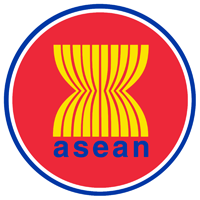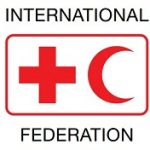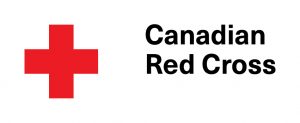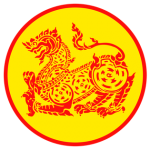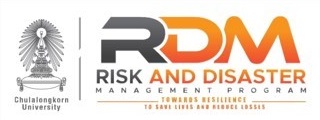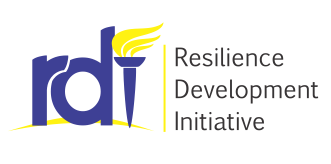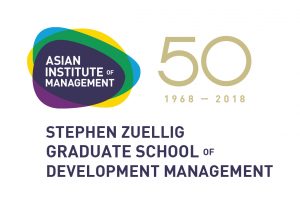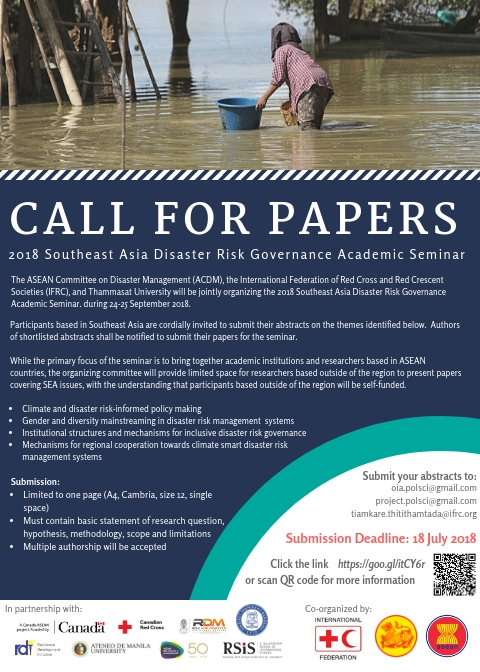
The ASEAN Committee on Disaster Management (ACDM), the International Federation of Red Cross and Red Crescent Societies (IFRC), and Thammasat University will be jointly organizing the 2018 Southeast Asia Disaster Risk Governance Academic Seminar.
The intended outcome of this seminar is to enhance knowledge sharing on different climate smart and inclusive disaster risk governance legal frameworks, policies and tools implemented across Southeast Asia, based on best practices in the region, for the benefit of policy-makers and other relevant stakeholders.
Participants based in Southeast Asia are cordially invited to submit their abstracts on the themes identified below. Abstracts and queries shall be sent to oia.polsci@gmail.com, project.polsci@gmail.com, and tiamkare.thitithamtada@ifrc.org. Authors of shortlisted abstracts shall be notified to submit their papers for the seminar. Successful applicants will be invited to attend the seminar.
While the primary focus of the seminar is to bring together academic institutions and researchers based in ASEAN countries, the organizing committee will provide limited space for researchers based outside of the region to present papers covering SEA issues, with the understanding that participants based outside of the region will be self-funded.
Guidelines
Target participants:
The intended participants from Southeast Asia are:
a) Academics and students from academic institutions in Southeast Asia
b) National disaster management office (NDMO) staff
c) non-government DRM practitioners
d) Red Cross Red Crescent national societies
e) legislative drafters
Timeline (GMT +07:00):
| Call for abstracts | 18 June 2018 |
| Deadline for submission of abstracts | 18 July 2018 |
| Meeting of the peer review committee | 23 July (tentative) |
| Release of shortlist | 01 August 2018 |
| Submission of papers | 10 September 2018 |
| Seminar | 24-25 September 2018 |
| Closed Session for Dialogue Partners | 26 September 2018 |
| Publication | December 2018 |
Submission:
Abstract
- Limited to one page (A4, Cambria, size 12, single space)
- Must contain basic statement of research question, hypothesis, methodology, scope and limitations
Paper
- Only previously unpublished papers will be accepted
- Papers based on shortlisted abstracts shall be peer-reviewed by the organizing committee prior to their presentation in the seminar and final publication
Authorship
- Multiple authorship will be accepted
Theme
Main Theme: Effective legal frameworks for inclusive and climate smart disaster risk governance
The paper should provide an analysis on policies, laws, or regulations in Southeast Asian countries that promote or can promote inclusive and climate smart disaster risk governance at the national and subnational level. For purposes of this seminar, disaster risk governance is defined as the system of institutions, mechanisms, policy and legal frameworks and other arrangements to guide, coordinate and oversee disaster risk reduction and related areas of policy. Inclusive means disaster risk governance measures that ensure the participation and representation of different stakeholders in disaster risk management, especially marginalized at-risk groups. Climate smart means disaster risk governance measures that link the objectives of climate change adaptation and disaster risk management within the framework of resilience.
Strengthening disaster risk governance to manage disaster risk is one of the priorities for action under the Sendai Framework for Disaster Risk Reduction (SFDRR) to substantially reduce disaster risk and losses in lives, livelihoods and health by 2030. Strong disaster risk governance requires effective legal frameworks which clarify the rights, roles and responsibilities of governments and non-government actors in disaster risk reduction. They steer resources towards the needs of at-risk communities and vulnerable groups. Women, LGTBQI, boys and girls, persons with disability, the elderly, and other at-risk marginalized groups who have higher vulnerability to the negative impacts of climate change and disasters need more support and resources in this regard.
Effective legal frameworks also function as building blocks for integrating programs aimed at disaster risk reduction and climate change adaptation. Both the SFDRR and the Paris Agreement on Climate Change point to the necessary dovetailing of both spheres if the objectives of both international instruments are to be attained. Climate and disaster risk insurance, common reporting tools and metrics for loss and damage, sea-level rise and ecosystem management are just some of the issues at the nexus of disaster risk reduction and climate change adaptation.
Sub-themes and guide questions:
- Climate and disaster risk-informed policymaking
How do decisionmakers take into account climate change and disaster risk into policymaking? What are some good examples of how this is being done at multiple levels (including local rural and urban DRM)? How can the policies can be designed and implemented better? To which extent, if science applied, structural approach together with non-structural are being used to formulate stronger policies?
- Gender and diversity mainstreaming in disaster risk management systems
Gender and diversity mainstreaming in disaster risk management programs is important in ensuring that the differentiated needs and strengths of women, girls and boys, and LGBTQI are considered throughout the entire process. Incidents of sex and gender-based violence (SGBV) have also been found to increase in the aftermath of a disaster compared to normal times. What are useful examples of legal frameworks and tools that promote and institutionalize the inclusion and / or protection of these groups in DRM? How can these legal frameworks and tools be improved?
- Institutional structures and mechanisms for inclusive disaster risk governance
The SFDRR underscores the importance of establishing government coordination forums at the national and local levels in strengthening disaster risk governance. Moreover, these forums or platforms are recognized by many stakeholders as important in giving the marginalized at-risk groups a voice in the decision-making table. What are good examples of legal frameworks, institutional mechanisms or tools that enable these forums? How can they be improved?
- Mechanisms for regional cooperation towards climate smart disaster risk management systems
Southeast Asia is the only region in the world which has adopted a binding regional agreement on disaster risk management. Is there a similar need to have a binding regional agreement on climate change adaptation? What would be good examples of bilateral instruments, cooperation agreements, regional tools on monitoring, reporting and evaluation of climate and disaster risk, or other similar mechanisms that enable regional cooperation towards climate smart DRM systems? How can these be established and / or improved?
Organizers
ASEAN Committee on Disaster Management
The ASEAN Committee on Disaster Management (ACDM), made up of the respective national disaster management offices of each ASEAN member state, executes the ASEAN Agreement on Disaster Manager and Emergency Response (AADMER), which is a legally binding agreement to provide mechanisms to reduce loss of life and assets resulting from disasters in Southeast Asia. In April 2017, ACDM endorsed the Chairperson’s proposal to collaborate with IFRC on the “ASEAN Peer to Peer Learning: Disaster Law and Policy Platform”. The collaboration seeks to address issues of disaster risk governance in ASEAN and aims to provide a platform for dialogue, shared learning, training and research on disaster law and policy frameworks, both in terms of development and its implementation, between ASEAN Member states. The peer learning platform is under AADMER Work Programme 2016-2020 Priority Programme 4 on Advance. Specifically, it forms part of Component 1 on “strengthening institutional capacity and policy frameworks for effective implementation” through “developing peer-to-peer support programme among ASEAN Member States to strengthen institutional and policy development related to DRR and CCA.”
International Federation of Red Cross and Red Crescent Societies
As part of its objective to strengthen resilience in the region, the IFRC Disaster Law (DL) Programme assists Southeast Asia Red Cross and Red Crescent National Societies to support their authorities in developing and applying state-of-the-art disaster-related legislation, policies and procedures. The DL Programme offers a menu of tools that can be used by stakeholders involved in DRM policy-making and implementation, and has published practical and timely research on topics such as International Disaster Response Laws, Rules and Procedures (IDRL), Law and Disaster Risk Reduction, case studies on disaster law and SGBV, and the ASEAN Disaster Law Mapping on the institutionalization of AADMER in Southeast Asian countries. The DL Programme is generously supported by the Regional Resilience Initiative (RRI), a 3-year project implemented by IFRC in Southeast Asia with support from the Government of Canada and Canadian Red Cross.
Faculty of Political Science, Thammasat University
For over 70 years, the Faculty of Political Science, Thammasat University has been a leading educational institution producing high-quality graduates and paving the way for the creation of knowledge deemed necessary to the nation’s development. These contributions have made the Faculty widely accepted within the society and such a success could not have happened without the concerted efforts by our teaching members, staff, students and alumni.
Risk and Disaster Management Program, Chulalongkorn University
The Risk and Disaster Management (RDM) program focuses on producing graduates with great knowledge and expertise in risk and disaster management, as well as effective and systematic thinking processes. The program aims to serve the country’s needs in risk and disaster management and to achieve a long-term goal of disaster risk reduction and mitigation. It emphasizes a holistic view of knowledge integration from physical science, health science, social science, and engineering. RDM students will become a part of working networks in the field of risk and disaster management through academic activities, coursework, research, and field trips.
Resilience Development Initiative (RDI)
Resilience Development Initiative (RDI) is a global think tank based in Indonesia, focusing on resilience studies. RDI has seven research clusters, among others; Renewable Energy and Emission Reduction (REER), Water and Waste Management (WWM), Tourism and Cultural Heritage (TCH), Disaster and Climate Resilience(DCR), Infrastructure and Urban Governance (IUG), Children, Social Welfare, and Health (CSWH), and Finance and Business Management (FBM). RDI hosts regular guest lecture, internships, and visiting scholars. Up to date RDI has about 70 research fellows and 23 partner institutions from 13 countries. RDI has interns & visiting scholars coming from Australia, Italy, Japan, Netherlands, Norway, Uganda, United Kingdom, United States, and Indonesia.
Disaster Risk and Resilience Program, Ateneo de Manila University
The Ateneo de Manila University (AdMU) is a private research university in Metro Manila, Philippines. Founded by the Society of Jesus in 1859, the AdMU is the third-oldest university in the Philippines.
The Ateneo Human Rights Center (AHRC) as a unit of the Ateneo Law School actively participates in the integration of human rights laws into the mainstream by introducing law students to human rights advocacy and awareness within the framework of the legal system. AHRC has also been instrumental in the introduction of human rights courses into the Ateneo Law curriculum, including Human Rights Law, Children’s Rights Law, Women’s Rights Law, Indigenous Peoples Rights Law, International Humanitarian Law and Refugee Law.
The Master of Disaster Risk and Resilience degree program is jointly designed and delivered by the following AdMU units: Department of Environmental Science- School of Science and Engineering, Department of Sociology and Anthropology- School of Social Sciences, the Ateneo Innovation Center, and the Manila Observatory. It advances inter-/trans-disciplinary approaches to address risk and build resilience by increasing trained professionals and practitioners in all phases of disaster risk reduction (DRR), contributing to the realization of the Sendai Framework for Disaster Risk Reduction (SFDRR) through United Nations Asia Science, Technology, and Academia Advisory Group (UN ASTAAG) and United Nations International Strategy for Disaster Reduction Private Sector Alliance for Disaster Resilient Societies (UNISDR ARISE), using science-based education and training in DRR, and responding globally and locally to the need for new knowledge to implement and align the SFDRR, Sustainable Development Goals, and the Paris Agreement.
Stephen Zuellig Graduate School of Development Management, Asian Institute of Management
The Asian Institute of Management (AIM) is an international graduate school whose goal is to make a difference in sustaining the growth of Asian societies by developing professional, entrepreneurial, and socially responsible managers.
The Stephen Zuellig Graduate School of Development Management (ZSDM) is AIM’s response to the challenge of sustaining Asian development. By working with the Sustainable Development Goals agenda, the school creates principled development leaders and managers who are capable of achieving sustainable success. ZSDM engages emerging economies to build a team of civil leaders and business managers equipped to be problem solvers, change agents, and effective collaborators. In line with this, starting May 2019 ZSDM will be offering an 18-month immersive, innovative, and practitioner-oriented Executive Master in Disaster Risk and Crisis Management (EMDRCM). The EMDRCM educates responsive disaster risk and crisis managers who could understand Asian context and operating environment, develop evidence-based solutions, lead diverse teams in complex situations, and manage implementations in an efficient and effective manner.
S. Rajaratnam School of International Studies, Nanyang Technological University, Singapore
RSIS was inaugurated on 1 January 2007. We originally started as the Institute of Defence and Strategic Studies (IDSS) that was established on 30 July 1996 by President Tony Tan, then Deputy Prime Minister and Minister for Defence. We are an autonomous graduate school in the Nanyang Technological University (NTU). We teach postgraduate programmes in Asian Studies, International Political Economy, International Relations, and Strategic Studies. We also teach a Double Masters Programme with the University of Warwick, where students spend the first year at Warwick and the second year at RSIS. The School also has a select PhD programme for advanced students. To date, students from 66 countries have passed through the portals of RSIS.
Besides providing a professional graduate education, RSIS conducts research in subjects pertaining to security, defence, diplomacy and international affairs. We organise lectures, conferences and seminars that are aimed at helping policymakers to develop comprehensive approaches to strategic thinking. Our network with universities and think tanks all over the world is extensive, including membership of the Council of Councils established by the U.S.-based Council on Foreign Relations.
![]()


